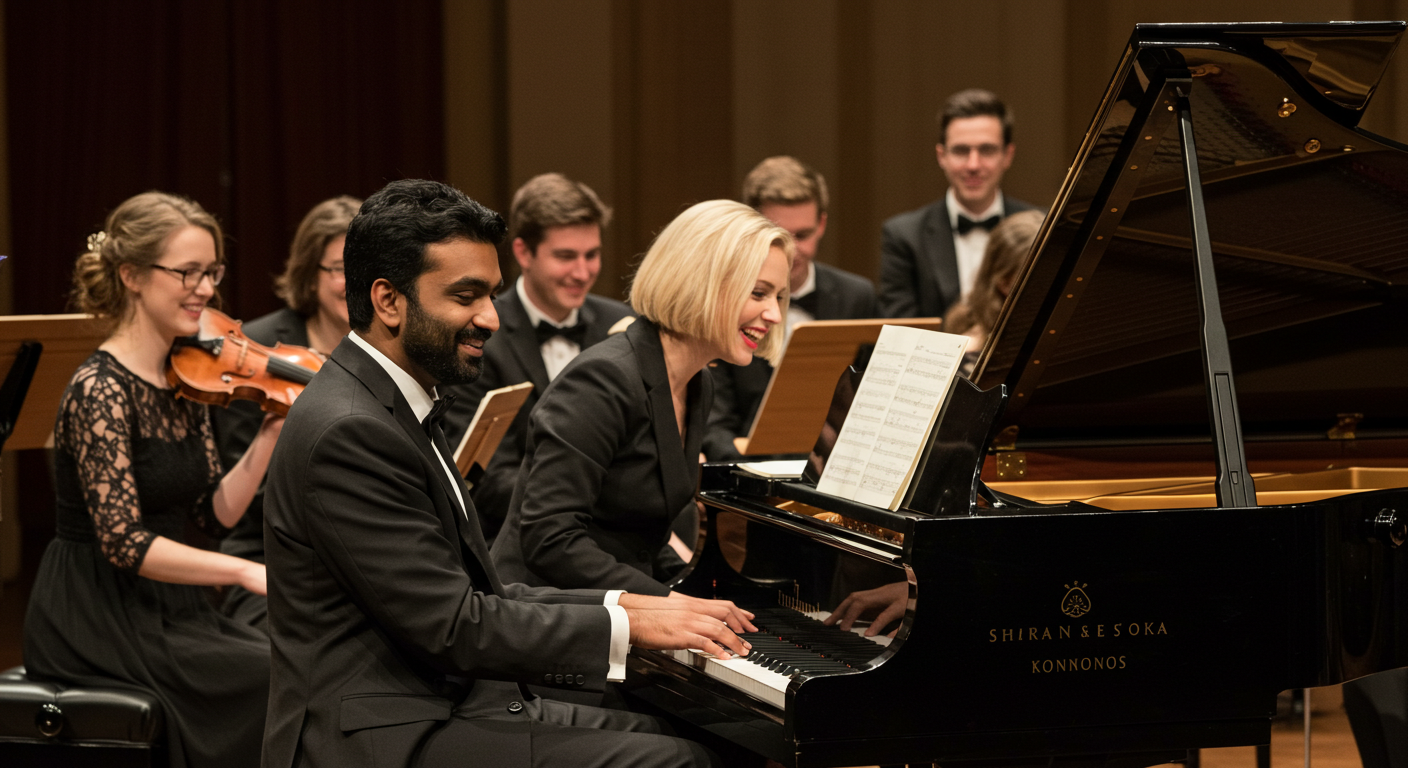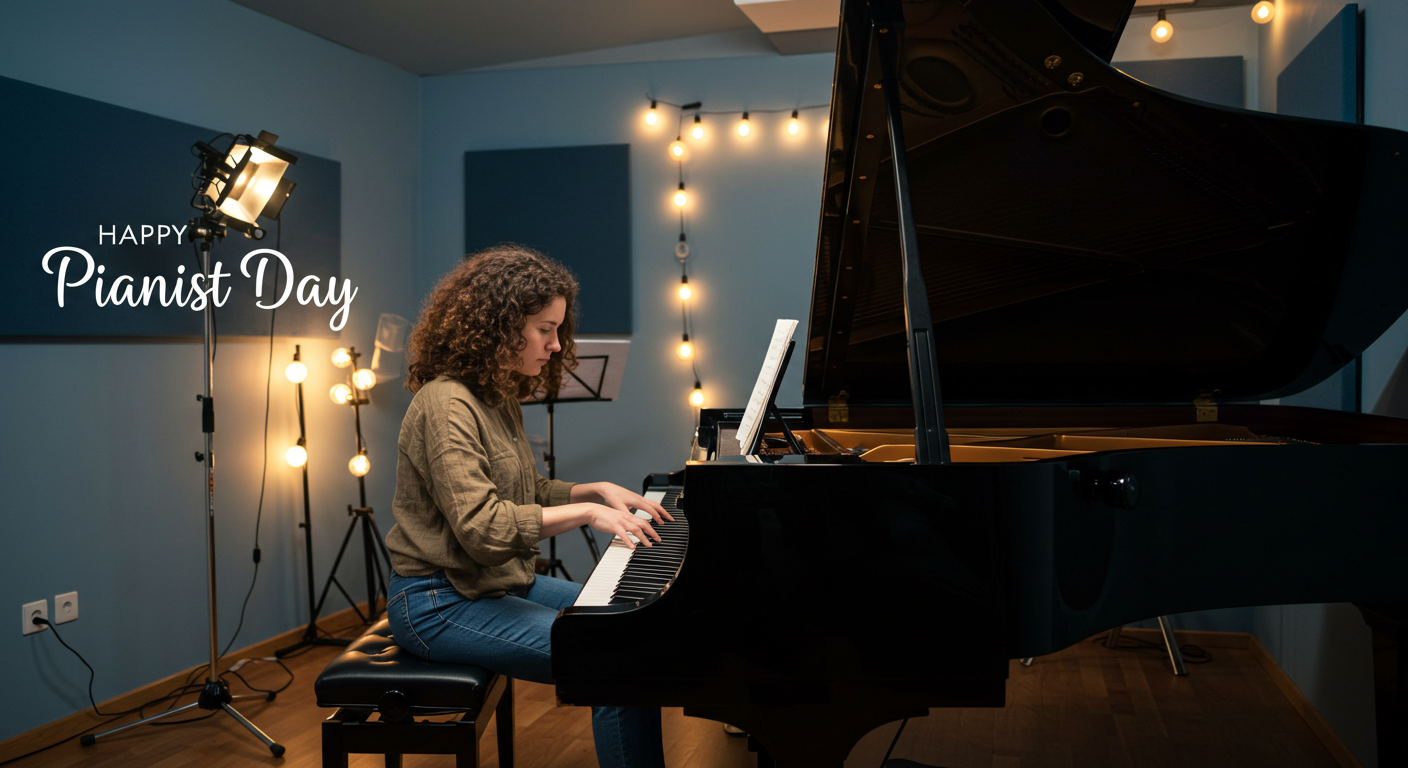What Every Pianist Wishes Non-Musicians Knew

Spend enough time behind a piano, and you'll hear it all.
“Play something!”
“Can you do that thing from Amélie?”
“Wow, you must be naturally talented.”
And while pianists are generally too polite to correct anyone mid-conversation, deep down, we’ve got a list — a mental FAQ — of what we wish people actually understood about our lives behind the keys.
So in the spirit of Pianist Day, which celebrates the passion and dedication of pianists worldwide, we’re setting the record straight. This one’s for every pianist who's ever smiled through a strange request, a tone-deaf comment, or an underappreciated gig. And if you're not a musician, consider this a friendly guide to what’s really going on behind the music.
“No, We Can’t Just Play That by Ear”
Sure, some pianists have perfect pitch. A rare few can sit down and play just about anything on the spot. But for most of us, it’s not that simple.
When someone says, “Hey, play Bohemian Rhapsody!” what we hear is, “Please rearrange a complex orchestration for solo piano and perform it flawlessly without prep.” We’d love to, but unless it’s already in our fingers, it’s going to take some time. Piano playing isn’t magic — it’s memory, muscle, and hours of practice.
“Practicing Is Not the Same as Playing for Fun”
Yes, we love the piano. But practicing isn't just relaxing time at the keys. It's slow, repetitive, and brutally specific. Practicing means working on that one bar of music again and again, adjusting dynamics, counting rests, checking fingerings, and trying not to throw your metronome across the room.
So if you’ve ever interrupted someone mid-practice with, “Can you play something real now?”, trust us — they were playing something real. It just wasn't ready for an audience yet.
“We Can’t Bring Our Grand Piano With Us”
This one might sound obvious, but you'd be surprised. Pianists are often expected to just “show up and play” — as if transporting a 500-pound instrument is as easy as carrying a guitar case. Spoiler: it’s not.
Even upright pianos are heavy, delicate, and expensive to move. We rely on venues to provide decent instruments, but we’ve played our fair share of out-of-tune uprights in cold gymnasiums and mystery-brand digital keyboards at community centers. If we ever seem picky about pianos, it’s because we know how much the instrument matters.
“Yes, We’ve Played Für Elise — About a Hundred Times”
It’s a classic. It’s iconic. It’s also the most requested piece in the history of piano. And yes, we’ve played it. Many, many times.
We’re happy to pull it out when someone asks, but just know — pianists have entire repertoires beyond Beethoven’s greatest hits. Try asking for something different. You might be surprised what we can do.
“Reading Sheet Music Is Not Just ‘Looking at Notes’”
To the untrained eye, sheet music might just look like dots on lines. But reading it — really reading it — is more like decoding a technical document, performing it live, and emotionally interpreting it all at once.
We're processing rhythm, harmony, phrasing, hand coordination, tempo changes, and sometimes even page turns... in real time. And on top of that, we have to make it sound like music. It’s a skill that takes years to develop, and we’re still refining it.
“Our Hands Get Tired — And Our Backs, Too”
Piano playing looks graceful, but it’s physically demanding. Hours of practice strain your hands, wrists, back, shoulders — sometimes all at once. Pianists have to pay attention to posture, tension, endurance, and injury prevention. That beautiful Chopin prelude you just heard? It probably came with a side of muscle memory, stretches, and Advil.
“We Love It — But It’s Work”
Pianists don’t play because it’s easy. We play because we can’t imagine not playing. We know it sounds romantic to think of someone just losing themselves in music all day, but the truth is: it’s work. Fulfilling, creative, meaningful work — but work nonetheless.
When you celebrate a pianist, you're not just celebrating their performance. You're acknowledging the thousands of hours that came before it. And that's exactly why Pianist Day exists — to spotlight the invisible effort, passion, and persistence that make those moments of music possible.
A Few Things Pianists Do Love to Hear
To end on a high note, here are a few things non-musicians say that make our day:
- “That must have taken so much time to learn.”
- “I’ve never heard that piece before — what is it?”
- “Would you mind showing me how that works?”
- “I didn’t know you could do that on a piano!”
It doesn’t take much. A little curiosity and a bit of appreciation go a long way.
Final Notes
Being a pianist is a gift, but it’s not effortless. Behind every polished performance is a person who practiced when no one was watching, who made mistakes, who doubted themselves, and who still showed up.
So this Pianist Day, if you know someone who plays — say thanks. Let them know you see the work they put in. And maybe don’t ask them to play Für Elise. Just this once.
Related news (no lang!)
You Might Also Like (no lang!):
Do you want your name to be included on the world Pianist Day website and remain there forever?
CONTACT US!
Filll the form for creating your own events and stories! Also you can send us the info to our email info@pianistday.com, or directly to Instagram (it's more convenient and easier) so we can tell the world about them.








